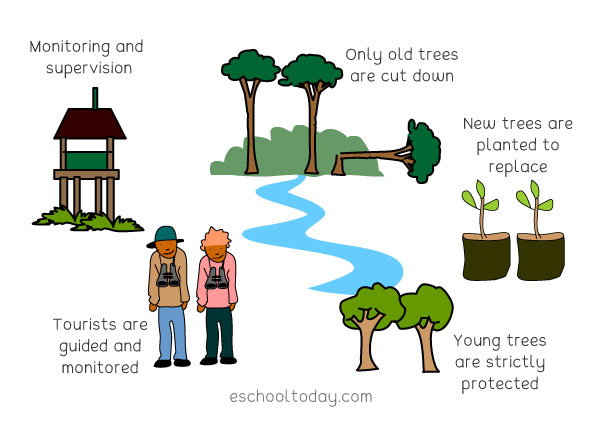- Forest Preservation
What is the meaning of forestry?
We learned about the complex interaction of climate, soils, and rocks, water, animals (including insects and fungi), and plants as the defining elements of a natural forest.
Forestry is the study of this complex interaction, the management of the various components of the forest, the preservation of its natural balance (of forests and the life forms they support) as well as the care of it to ensure its wellbeing.
Good forestry programs also make it possible for humans to get some economic value from it without hurting the forests in any way. This way of using the forest is known as Sustainable Forestry.
Sustainable Forestry
In sustainable forestry, efforts are to replace almost all the resources we get from the forests, and extra care to ensure that there is very little damage to wildlife and the natural environment.
Example: only old trees may be cut, allowing younger trees to grow to ensure continuity, and trees are planted to replace the ones cut down.

Unfortunately, environmental issues cannot be separated from politics and economics (people’s life). That is why effective sustainable forestry comes in two approaches. These are:
Forests and Forests related Industries
Here, the attention is on the natural resource itself and the timber companies that harness resources directly from the forests. In this approach, there are usually strict rules and consequences with the way resources are extracted from that forest. It is often enforced by legislation, hefty fines, and monitoring efforts. In recent times, the use of technology is helping authorities see more about what is going on in the forests.
That means items made from resources that come from forests will cost a lot in the shops, so consumers also need to be prepared.
Consumer behavior
Here, campaigns are developed to educate consumers (industries and individuals including you) on the value of forest resources and the dangers forests face. Efforts are directed to make people more environmentally aware and friendly. For example, people are encouraged to recycle more, to use paper products from recycled pulp, and to encourage everyone to join the fight to save our forests.
